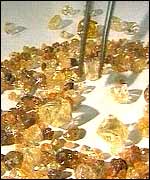Processing Is the Problem
Dr Joseph Mercola
The path that transforms healthy milk products into allergens and carcinogens begins with modern feeding methods that substitute high-protein, soy-based feeds for fresh green grass and breeding methods to produce cows with abnormally large pituitary glands so that they produce three times more milk than the old fashioned scrub cow. These cows need antibiotics to keep them well.
Their milk is then pasteurized so that all valuable enzymes are destroyed (lactase for the assimilation of lactose; galactase for the assimilation of galactose; phosphatase for the assimilation of calcium).
Literally dozens of other precious enzymes are destroyed in the pasteurization process. Without them, milk is very difficult to digest. The human pancreas is not always able to produce these enzymes; over-stress of the pancreas can lead to diabetes and other diseases.
The butterfat of commercial milk is homogenized, subjecting it to rancidity. Even worse, butterfat may be removed altogether. Skim milk is sold as a health food, but the truth is that butter-fat is in milk for a reason.
Without it the body cannot absorb and utilize the vitamins and minerals in the water fraction of the milk. Along with valuable trace minerals and short chain fatty acids, butterfat is America's best source of preformed vitamin A.
Synthetic vitamin D, known to be toxic to the liver, is added to replace the natural vitamin D complex in butterfat. Butterfat also contains re-arranged acids which have strong anti-carcinogenic properties.
Non-fat dried milk is added to 1% and 2% milk. Unlike the cholesterol in fresh milk, which plays a variety of health promoting roles, the cholesterol in non-fat dried milk is oxidized and it is this rancid cholesterol that promotes heart disease.
Like all spray dried products, non-fat dried milk has a high nitrite content. Non-fat dried milk and sweetened condensed milk are the principle dairy products in third world countries; use of ultra high temperature pasteurized milk is widespread in Europe.
Other Factors Regarding Milk
Milk and refined sugar make two of the largest contributions to food induced ill health in our country. That may seem like an overly harsh statement, but when one examines the evidence, this is a reasonable conclusion.
The recent approval by the FDA of the use of BGH (Bovine Growth Hormone) by dairy farmers to increase their milk production only worsens the already sad picture.
BGH causes an increase in an insulin-like growth factor (IGF-1) in the milk of treated cows. IGF-1 survives milk pasteurization and human intestinal digestion. It can be directly absorbed into the human bloodstream, particularly in infants.
It is highly likely that IGF-1 promotes the transformation of human breast cells to cancerous forms. IGF-1 is also a growth factor for already cancerous breast and colon cancer cells, promoting their progression and invasiveness.
It is also possible for us to absorb the BGH directly from the milk. This will cause further IGF-1 production by our own cells.
BGH will also decrease the body fat of cows. Unfortunately, the body fat of cows is already contaminated with a wide range of carcinogens, pesticides, dioxin, and antibiotic residues. When the cows have less body fat, these toxic substances are then transported into the cows' milk.
BGH also causes the cows to have an increase in breast infections for which they must receive additional antibiotics.
Prior to BGH, 38%of milk sampled nationally was already contaminated by illegal residues of antibiotics and animal drugs. This will only increase with the use of BGH. One can only wonder what the long term complications will be for drinking milk that has a 50% chance it is contaminated with antibiotics.
There is also a problem with a protein enzyme called xanthine oxidase which is in cow's milk. Normally, proteins are broken down once you digest them.
However, when milk is homogenized, small fat globules surround the xanthine oxidase and it is absorbed intact into your blood stream. There is some very compelling research demonstrating clear associations with this absorbed enzyme and increased risks of heart disease.
Ear specialists frequently insert tubes into the ear drums of infants to treat recurrent ear infections. It has replaced the previously popular tonsillectomy to become the number one surgery in the country.
Unfortunately, most of these specialists don't realize that over 50% of these children will improve and have no further ear infections if they just stop drinking their milk.
This is a real tragedy. Not only is the $3,000 spent on the surgery wasted, but there are some recent articles supporting the likelihood that most children who have this procedure will have long term hearing losses.
It is my strong recommendation that you discontinue your milk products. If you find this difficult, I would start for several weeks only, and reevaluate how you feel at that time.
This would include ALL dairy, including skim milk and Lact-Aid milk, cheese, yogurt, and ice cream. If you feel better after several weeks you can attempt to rotate small amounts of one form of milk every four days.
You probably are wondering what will happen to your bones and teeth if you stop milk. The majority of the world's population takes in less than half the calcium we are told we need and yet they have strong bones and healthy teeth.
Cows' milk is rich in phosphorous which can combine with calcium -- and can prevent you from absorbing the calcium in milk. The milk protein also accelerates calcium excretion from the blood through the kidneys.
This is also true when you eat large amount of meat and poultry products. Vegetarians will need about 50% less calcium than meat eaters because they lose much less calcium in their urine.
It is possible to obtain all your calcium from dark green vegetables (where do you think the cow gets their's from?). The darker the better. Cooked collard greens and kale are especially good. If you or your child is unable to take in large amounts of green vegetables, you might want to supplement with calcium.
If you can swallow pills, we have an excellent, inexpensive source called Calcium Citrate, which has a number of other minerals which your body requires to build up maximally healthy bone.
It is much better than a simple calcium tablet. You can take about 1,000 mg a day. For those who already suffer from osteoporosis, the best calcium supplement is microcrystalline hydroxyapatite.
It is also important that you take vitamin D in the winter months from November to March. Normally your skin converts sunshine to vitamin D, but the sunshine levels in the winter are very low unless you visit Florida or Mexico type areas.
Most people obtain their vitamin D from milk in the winter; so if you stop it, please make sure you are taking calcium with vitamin D or a multi vitamin with vitamin D to prevent bone thinning.
Most people are not aware that the milk of most mammals varies considerably in its composition. For example, the milk of goats, elephants, cows, camels, wolves, and walruses show marked differences, in their content of fats, protein, sugar, and minerals. Each was designed to provide optimum nutrition to the young of the respective species. Each is different from human milk.
In general, most animals are exclusively breast-fed until they have tripled their birth weight, which in human infants occurs around the age of one year. In no mammalian species, except for the human (and domestic cat) is milk consumption continued after the weaning period. Calves thrive on cow milk. Cow's milk is designed for calves.
Cow's milk is the number one allergic food in this country. It has been well documented as a cause in diarrhea, cramps, bloating, gas, gastrointestinal bleeding, iron-deficiency anemia, skin rashes, atherosclerosis, and acne.
It is the primary cause of recurrent ear infections in children. It has also been linked to insulin dependent diabetes, rheumatoid arthritis, infertility, and leukemia.
Hopefully, you will reconsider your position on using milk as a form of nourishment. Small amounts of milk or milk products taken infrequently, will likely cause little or no problems for most people.
However, the American Dairy Board has done a very effective job of marketing this product. Most people believe they need to consume large, daily quantities of milk to achieve good health. NOTHING could be further from the truth.
Public health officials and the National Dairy Council have worked together in this country to make it very difficult to obtain wholesome, fresh, raw dairy products. Nevertheless, they can be found with a little effort. In some states, you can buy raw milk directly from farmers.
Whole, pasteurized, non-homogenized milk from cows raised on organic feed is now available in many gourmet shops and health food stores. It can be cultured to restore enzyme content, at least partially. Cultured buttermilk is often more easily digested than regular milk; it is an excellent product to use in baking.
Many shops now carry whole cream that is merely pasteurized (not ultra pasteurized like most commercial cream); diluted with water, it is delicious on cereal and a good substitute for those allergic to milk.
Traditionally made creme fraiche (European style sour cream), it also has a high enzyme content.
Other Information about milk
No Milk (thanks Chet Day for the link)
www.notmilk.com - a wealth of information about milk (including a Pro dairy section)
ADHD and living milk free - Linda Blanchard has the story of how her daughter's ADHD has been alleviated by putting her on a milk-free diet
Milk Sucks
why dairy wont help you maintain strong bones
Strong bones - Physicians committee for responsible medicine
Understanding lactose intolerance
 VIDEO: "Blood Diamonds" Leave Costly Legacy in Africa: "Torture, mutilation, civil war, and slavery. For many African nations, diamonds are not a luxury item but a harbinger of violence and death.
VIDEO: "Blood Diamonds" Leave Costly Legacy in Africa: "Torture, mutilation, civil war, and slavery. For many African nations, diamonds are not a luxury item but a harbinger of violence and death. World's Largest Superconducting Magnet Up and Running: "The world's largest superconducting magnet has been successfully powered up on its first try and is ready to test some of the most fundamental questions of science, researchers say.
World's Largest Superconducting Magnet Up and Running: "The world's largest superconducting magnet has been successfully powered up on its first try and is ready to test some of the most fundamental questions of science, researchers say.



 I heard a quote a long long time ago that I revisit in my mind vault from time to time. The quote is "Insanity is doing the same thing over and over again expecting different results". What a profound statement basically this can be applied to all facets of life, be it professional, personal, or social movement. This is where "anger" comes in. Here is a template of symptoms that can be used for any situation, you have been trying to get somewhere, achieve something, get compensated for services rendered, get love from another, feel loved in return, respected at your job, satisfaction from your job, dont want a job, make enough money to live very comfortable, and the list goes on, you get the idea. Well simply in order to make change, you just cant be disgruntled, unsatisfied, depressed, confused or any of a myriad of feelings, the only feeling that will make change is "anger" . When one is angry about something, believe me there will be change. Now, when using anger, I am not suggesting violence, however this tool has been used through out history, and sometimes it may be needed, but lets use "anger" in a more civilized way. Just think about it, anything that it getting on your last nerve... now get angry about it, change will surely come out it. Remember, "Insanity is doing the same thing over and over again expecting different results".
I heard a quote a long long time ago that I revisit in my mind vault from time to time. The quote is "Insanity is doing the same thing over and over again expecting different results". What a profound statement basically this can be applied to all facets of life, be it professional, personal, or social movement. This is where "anger" comes in. Here is a template of symptoms that can be used for any situation, you have been trying to get somewhere, achieve something, get compensated for services rendered, get love from another, feel loved in return, respected at your job, satisfaction from your job, dont want a job, make enough money to live very comfortable, and the list goes on, you get the idea. Well simply in order to make change, you just cant be disgruntled, unsatisfied, depressed, confused or any of a myriad of feelings, the only feeling that will make change is "anger" . When one is angry about something, believe me there will be change. Now, when using anger, I am not suggesting violence, however this tool has been used through out history, and sometimes it may be needed, but lets use "anger" in a more civilized way. Just think about it, anything that it getting on your last nerve... now get angry about it, change will surely come out it. Remember, "Insanity is doing the same thing over and over again expecting different results".

 This is just some of the gear that is used to bring my vision to your ears, Spectrasonics has really lead the way in developing a sound production platform that allows the artist to truly develop and nurture what he/she is trying to convey, without this gear, most of what you hear from the TRSQ camp would have never been possible.
This is just some of the gear that is used to bring my vision to your ears, Spectrasonics has really lead the way in developing a sound production platform that allows the artist to truly develop and nurture what he/she is trying to convey, without this gear, most of what you hear from the TRSQ camp would have never been possible.



 Not only is it Earth Day tomorrow, its my anniversary of both joing the U.S. Navy and finishing my tour, April 22nd. Truly a very special day for me, both the beginning of my adventure into this thing we call life and my arrival back home to a country in inner turmoil (now international as well).
Not only is it Earth Day tomorrow, its my anniversary of both joing the U.S. Navy and finishing my tour, April 22nd. Truly a very special day for me, both the beginning of my adventure into this thing we call life and my arrival back home to a country in inner turmoil (now international as well).
 Well, it's been an up and down year and its's now time to take a break.
Well, it's been an up and down year and its's now time to take a break.




